Prof. Han-Chieh Chao
National Dong Hwa University, Taiwan
Title: A Bacteria-Inspired Solution for 5G Mobile Communication
Abstract: A surge of innovation in technologies for 5G mobile communication is on the horizon, but its specification is still just being discussed. The only know is that 5G must introduce many novel hardware/software techniques, service types and network interfaces due to the requirement. There is very frequent interaction between these components that is like an ecosystem. An ecosystem has a very diverse species so that there are complex interaction happened. However, it can always maintain a balanced state because an ecosystem is a Self-Organizing Network (SON). 5G should consider to concept of SON so that the interaction of 5G functions can be well managed. This is the first step towards ecosystem by using biologically inspired method. This speech will introduce what is the biologically inspired method and how to use it for the real environment. Finally, we will present a novel network platform for 5G mobile communication system, viz Software Defined Wireless Bacteria-Inspired Network (SDWBIN). The SDWBIN platform integrates the concepts of molecular and bacterial communication into traditional mobile communications so that the features of molecule and bacteria (i.e., perception, infection and diffusion) could be applied to end devices, such as vehicle-to-vehicle, machine-to-machine and device-to-device. In order to realize the design of SDWBIN platform, we exploit the framework of Software Defined Wireless Network to implement the core network in SDWBIN. We expect that the proposed SDWBIN platform can tackle with the communication from an enormous number of devices in 5G systems
Bio: Dr. Han-Chieh Chao is a joint appointed Chair Professor of the Department of Computer Science & Information Engineering, Electronic Engineering of National Ilan University, I-Lan, Taiwan (NIU) and Fujian University of Technology. He is serving as the President since 2016 for NDHU as well. He was the Director of the Computer Center for Ministry of Education Taiwan from September 2008 to July 2010. His research interests include High Speed Networks, Wireless Networks, IPv6 based Networks, Digital Creative Arts, e-Government and Digital Divide. He received his MS and Ph.D. degrees in Electrical Engineering from Purdue University in 1989 and 1993 respectively. He has authored or co-authored 4 books and has published about 400 refereed professional research papers. He has completed more than 150 MSEE thesis students and 5 PhD students. Dr. Chao has been invited frequently to give talks at national and international conferences and research organizations. Dr. Chao is the Editor-in-Chief for IET Networks, Journal of Internet Technology. He is the founding Edtor-in-Chief for International Journal of Internet Protocol Technology, and International Journal of Ad Hoc and Ubiquitous Computing. He is also the associate editor for IEEE Network Magazine and IEEE Wireless Communications Magazine. Dr. Chao has served as the guest editors for Mobile Networking and Applications (ACM MONET), IEEE JSAC, IEEE Communications Magazine, IEEE Systems Journal, Computer Communications, IEE Proceedings Communications, the Computer Journal, Telecommunication Systems, Wireless Personal Communications, and Wireless Communications & Mobile Computing. Dr. Chao is an IEEE senior member and a Fellow of IET (IEE).
Distinguished Speakers
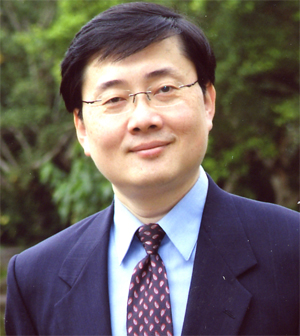
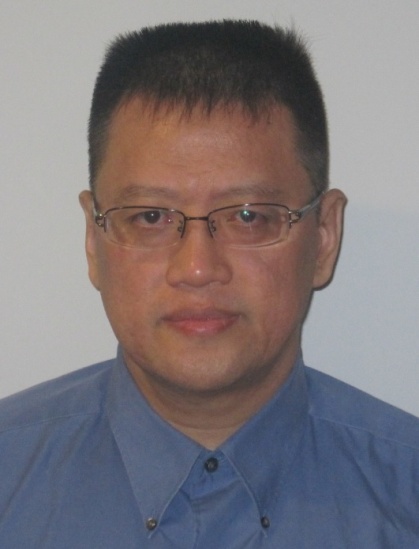
Dr. Yang Xiao
University of Alabama, USA
Title: Flow-Net Accountable Logging and Applications
Abstract: Accountability implies that any entity should be held responsible for its own specific action or behavior so that the entity is part of larger chains of accountability. One of the goals of accountability is that once an event has transpired, the events that took place are traceable so that the causes can be determined afterward. The poor accountability provided by today’s computers and networks wastes a great deal of money and effort. This is due to the simple fact that today’s computing and network infrastructure was not built with accountability in mind. In this talk we introduce our previous work: accountable logging methodology called flow-net. We apply this methodology to many applications ranging from operating system design to computer networks.
Bio: Dr. Yang Xiao currently is a Professor of Department of Computer Science at the University of Alabama, Tuscaloosa, AL, USA. His current research interests include networking and computer/network security. He has published over 200 journal papers and over 200 conference papers. Dr. Xiao was a Voting Member of IEEE 802.11 Working Group from 2001 to 2004, involving IEEE 802.11 (WIFI) standardization work. He is a Fellow of IET. He currently serves as Editor-in-Chief for International Journal of Security and Networks, International Journal of Sensor Networks, and Journal of Communications. He had (s) been an Editorial Board or Associate Editor for 17 international journals. He served (s) as a Guest Editor for over 20 times for different international journals. Dr. Xiao has delivered over 30 keynote speeches at international conferences around the world and gave more than 60 invited talks at different international institutes.
University of Alabama, USA
Title: Flow-Net Accountable Logging and Applications
Abstract: Accountability implies that any entity should be held responsible for its own specific action or behavior so that the entity is part of larger chains of accountability. One of the goals of accountability is that once an event has transpired, the events that took place are traceable so that the causes can be determined afterward. The poor accountability provided by today’s computers and networks wastes a great deal of money and effort. This is due to the simple fact that today’s computing and network infrastructure was not built with accountability in mind. In this talk we introduce our previous work: accountable logging methodology called flow-net. We apply this methodology to many applications ranging from operating system design to computer networks.
Bio: Dr. Yang Xiao currently is a Professor of Department of Computer Science at the University of Alabama, Tuscaloosa, AL, USA. His current research interests include networking and computer/network security. He has published over 200 journal papers and over 200 conference papers. Dr. Xiao was a Voting Member of IEEE 802.11 Working Group from 2001 to 2004, involving IEEE 802.11 (WIFI) standardization work. He is a Fellow of IET. He currently serves as Editor-in-Chief for International Journal of Security and Networks, International Journal of Sensor Networks, and Journal of Communications. He had (s) been an Editorial Board or Associate Editor for 17 international journals. He served (s) as a Guest Editor for over 20 times for different international journals. Dr. Xiao has delivered over 30 keynote speeches at international conferences around the world and gave more than 60 invited talks at different international institutes.
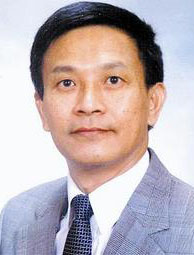
Dr. Yun-Qing Shi
New Jersey Institute of Technology (NJIT), Newark, New Jersey, USA
Title: Reversible Data Hiding and Deep Learning for Steganalysis
Abstract: The first part of this talk is to address Reversible Data Hiding. The current best technologies, the future research and development on Reversible Data Hiding will be discussed. The second part of this talk will be deep learning and its applications to steganalysis, one of the important and challenging task in forensics.
Bio: Dr. Yun Qing Shi has joined the Department of Electrical and Computer Engineering at the New Jersey Institute of Technology (NJIT), Newark, NJ since 1987, and is currently a professor there. His research interests include multimedia data hiding, forensics and security, applications of image processing, computer vision and pattern recognition to industrial automation and biomedical engineering, theory of multidimensional systems and signal processing. He is an author/coauthor of more than 300 papers in his research areas, a book on Image and Video Compression, three book chapters on Image Data Hiding, one book chapter on Steganalysis, and one book chapter on Digital Image Processing. He has edited nine issues of LNCS Transactions on Data Hiding and Multimedia Security by Springer, and more than 10 proceedings of international workshops and conferences. He holds 29 awarded US patents (most of these have been licensed to third party by NJIT). In addition to paper presentation in workshops/conferences, he has delivered more than 120 invited talks around the world and 18 three-hour tutorials, and is currently a Distinguished Lecture of ASPIPA (Asia-Pacific Signal and Information Processing Association). At NJIT, he has guided 16 Ph.D. and 30 M.S. students, and 27 visiting scholars. He is a member of IEEE Circuits and Systems Society (CASS)’s Technical Committee of Visual Signal Processing and Communications, Technical Committee of Multimedia Systems and Applications, a member of IEEE Signal Processing Society (SPS)’s Technical Committee of Information Forensics and Security, an associate editor of IEEE Transactions on Information Forensics and Security, and a fellow of IEEE for his contribution to Multidimensional Signal Processing since 2005. He obtained Innovators Award 2010 by New Jersey Inventors Hall of Fame (NJIHOF) for Innovations in Digital Forensics and Security. His US patent 7,457,341 entitled “System and Method for Robust Reversible Data Hiding and Data Recovery in the Spatial Domain” won 2010 Thomas Alva Edison Patent Award by Research and Development Council of New Jersey.
New Jersey Institute of Technology (NJIT), Newark, New Jersey, USA
Title: Reversible Data Hiding and Deep Learning for Steganalysis
Abstract: The first part of this talk is to address Reversible Data Hiding. The current best technologies, the future research and development on Reversible Data Hiding will be discussed. The second part of this talk will be deep learning and its applications to steganalysis, one of the important and challenging task in forensics.
Bio: Dr. Yun Qing Shi has joined the Department of Electrical and Computer Engineering at the New Jersey Institute of Technology (NJIT), Newark, NJ since 1987, and is currently a professor there. His research interests include multimedia data hiding, forensics and security, applications of image processing, computer vision and pattern recognition to industrial automation and biomedical engineering, theory of multidimensional systems and signal processing. He is an author/coauthor of more than 300 papers in his research areas, a book on Image and Video Compression, three book chapters on Image Data Hiding, one book chapter on Steganalysis, and one book chapter on Digital Image Processing. He has edited nine issues of LNCS Transactions on Data Hiding and Multimedia Security by Springer, and more than 10 proceedings of international workshops and conferences. He holds 29 awarded US patents (most of these have been licensed to third party by NJIT). In addition to paper presentation in workshops/conferences, he has delivered more than 120 invited talks around the world and 18 three-hour tutorials, and is currently a Distinguished Lecture of ASPIPA (Asia-Pacific Signal and Information Processing Association). At NJIT, he has guided 16 Ph.D. and 30 M.S. students, and 27 visiting scholars. He is a member of IEEE Circuits and Systems Society (CASS)’s Technical Committee of Visual Signal Processing and Communications, Technical Committee of Multimedia Systems and Applications, a member of IEEE Signal Processing Society (SPS)’s Technical Committee of Information Forensics and Security, an associate editor of IEEE Transactions on Information Forensics and Security, and a fellow of IEEE for his contribution to Multidimensional Signal Processing since 2005. He obtained Innovators Award 2010 by New Jersey Inventors Hall of Fame (NJIHOF) for Innovations in Digital Forensics and Security. His US patent 7,457,341 entitled “System and Method for Robust Reversible Data Hiding and Data Recovery in the Spatial Domain” won 2010 Thomas Alva Edison Patent Award by Research and Development Council of New Jersey.
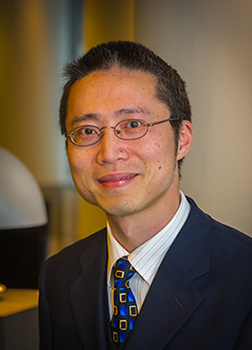
Prof. Yang Xiang
Deakin University , Australia
Title: Security and Privacy in Cloud Computing: Challenges and Opportunities
Abstract: Cloud Computing has pervaded all aspects of our daily lives. With its unparalleled popularity, cloud computing has evolved from a set of technologies to supporting infrastructure to human society. Its evolution has influenced every technological, societal, and cultural aspect of human beings. It has been widely recognized that security and privacy are the critical issues in cloud computing. On one hand, clouds have been the effective platform for the attackers to launch attacks, collect private information, and distribute malicious information. On the other hand, privacy leakage through clouds has become common exercise. New methods and tools, consequently, must follow up in order to adapt to this emerging security paradigm. In this talk, we will discuss the security and privacy issues in cloud computing and how we can turn challenges into opportunities to build a more secure cyberspace.
Bio: Professor Yang Xiang received his PhD in Computer Science from Deakin University, Australia. He is currently the Director of Centre for Cyber Security Research at Deakin University. His research interests include network and system security, distributed systems, and data analytics. He has published more than 200 research papers in international journals and conferences, such as IEEE Transactions on Computers, IEEE Transactions on Parallel and Distributed Systems, IEEE Transactions on Information Security and Forensics, and IEEE Transactions on Dependable and Secure Computing. He serves as the Associate Editor of IEEE Transactions on Computers, Security and Communication Networks (Wiley), and the Editor of Journal of Network and Computer Applications (Elsevier). He is a Senior Member of the IEEE.
Deakin University , Australia
Title: Security and Privacy in Cloud Computing: Challenges and Opportunities
Abstract: Cloud Computing has pervaded all aspects of our daily lives. With its unparalleled popularity, cloud computing has evolved from a set of technologies to supporting infrastructure to human society. Its evolution has influenced every technological, societal, and cultural aspect of human beings. It has been widely recognized that security and privacy are the critical issues in cloud computing. On one hand, clouds have been the effective platform for the attackers to launch attacks, collect private information, and distribute malicious information. On the other hand, privacy leakage through clouds has become common exercise. New methods and tools, consequently, must follow up in order to adapt to this emerging security paradigm. In this talk, we will discuss the security and privacy issues in cloud computing and how we can turn challenges into opportunities to build a more secure cyberspace.
Bio: Professor Yang Xiang received his PhD in Computer Science from Deakin University, Australia. He is currently the Director of Centre for Cyber Security Research at Deakin University. His research interests include network and system security, distributed systems, and data analytics. He has published more than 200 research papers in international journals and conferences, such as IEEE Transactions on Computers, IEEE Transactions on Parallel and Distributed Systems, IEEE Transactions on Information Security and Forensics, and IEEE Transactions on Dependable and Secure Computing. He serves as the Associate Editor of IEEE Transactions on Computers, Security and Communication Networks (Wiley), and the Editor of Journal of Network and Computer Applications (Elsevier). He is a Senior Member of the IEEE.

Prof. Yan Zhang
Simula Research Laboratory & University of Oslo, Norway
Title: Internet of Vehicles: when Cloud Computing meets Intelligent Transport Systems
Abstract: The concept of “connected vehicles” is driving the evolution of traditional transport systems into the era of Internet of Vehicles (IoV). In this emerging paradigm IoV, we may envision that the concepts of cloud computing and software defined networks (SDN) play a crucial role. This talk mainly includes three parts. In the first part, we introduce the key concepts and architectures in the IoV scenario. Then, we focus on several unprecedented challenges and potential solutions when we explore cloud computing and SDN for intelligent transport systems. These challenges are related to new cloud computing scenarios, optimal resource management, SDN for vehicular networks, security and new applications.
Bio: Prof. Yan Zhang is currently Head of Department and Chief Scientist, Department of Networks at Simula Research Laboratory, Norway. He is also an Associate Professor at the Department of Informatics, University of Oslo, Norway. From 1 September 2016, he will take the new position as a full-time Full Professor at the Department of Informatics, University of Oslo, Norway.
He received a PhD degree in School of Electrical & Electronics Engineering, Nanyang Technological University, Singapore. He is IEEE Access Associate Editor. He also serves as the guest editor for IEEE Communications Magazine, IEEE Wireless Communications Magazine, IEEE Network Magazine, IEEE Transactions on Smart Grid, IEEE Transactions on Dependable and Secure Computing, IEEE Transactions on Industrial Informatics, IEEE Systems Journal, IEEE Access, and IEEE Internet of Things journal. He serves as chair positions in a number of conferences, including IEEE PIMRC 2016, IEEE CloudCom 2016, IEEE ICCC 2016, IEEE CCNC 2016, WCSP 2016, WICON 2016, IEEE SmartGridComm 2015, and IEEE CloudCom 2015. He serves as TPC member for numerous international conference including IEEE INFOCOM, IEEE ICC, IEEE GLOBECOM, and IEEE WCNC. His current research interest include: next-generation wireless networks leading to 5G, reliable and secure cyber-physical systems (e.g., smart grid, healthcare, and transport), machine-to-machine communications, Internet-of-Things, economic approaches (e.g., game theory) for networks performance optimization. He has received 8 Best Paper Awards. He has 5 “Highly Cited Papers”. He is IEEE VTS (Vehicular Technology Society) Distinguished Lecturer. He is also a senior member of IEEE, IEEE ComSoc, and IEEE VT society. He is a Fellow of IET.
Simula Research Laboratory & University of Oslo, Norway
Title: Internet of Vehicles: when Cloud Computing meets Intelligent Transport Systems
Abstract: The concept of “connected vehicles” is driving the evolution of traditional transport systems into the era of Internet of Vehicles (IoV). In this emerging paradigm IoV, we may envision that the concepts of cloud computing and software defined networks (SDN) play a crucial role. This talk mainly includes three parts. In the first part, we introduce the key concepts and architectures in the IoV scenario. Then, we focus on several unprecedented challenges and potential solutions when we explore cloud computing and SDN for intelligent transport systems. These challenges are related to new cloud computing scenarios, optimal resource management, SDN for vehicular networks, security and new applications.
Bio: Prof. Yan Zhang is currently Head of Department and Chief Scientist, Department of Networks at Simula Research Laboratory, Norway. He is also an Associate Professor at the Department of Informatics, University of Oslo, Norway. From 1 September 2016, he will take the new position as a full-time Full Professor at the Department of Informatics, University of Oslo, Norway.
He received a PhD degree in School of Electrical & Electronics Engineering, Nanyang Technological University, Singapore. He is IEEE Access Associate Editor. He also serves as the guest editor for IEEE Communications Magazine, IEEE Wireless Communications Magazine, IEEE Network Magazine, IEEE Transactions on Smart Grid, IEEE Transactions on Dependable and Secure Computing, IEEE Transactions on Industrial Informatics, IEEE Systems Journal, IEEE Access, and IEEE Internet of Things journal. He serves as chair positions in a number of conferences, including IEEE PIMRC 2016, IEEE CloudCom 2016, IEEE ICCC 2016, IEEE CCNC 2016, WCSP 2016, WICON 2016, IEEE SmartGridComm 2015, and IEEE CloudCom 2015. He serves as TPC member for numerous international conference including IEEE INFOCOM, IEEE ICC, IEEE GLOBECOM, and IEEE WCNC. His current research interest include: next-generation wireless networks leading to 5G, reliable and secure cyber-physical systems (e.g., smart grid, healthcare, and transport), machine-to-machine communications, Internet-of-Things, economic approaches (e.g., game theory) for networks performance optimization. He has received 8 Best Paper Awards. He has 5 “Highly Cited Papers”. He is IEEE VTS (Vehicular Technology Society) Distinguished Lecturer. He is also a senior member of IEEE, IEEE ComSoc, and IEEE VT society. He is a Fellow of IET.
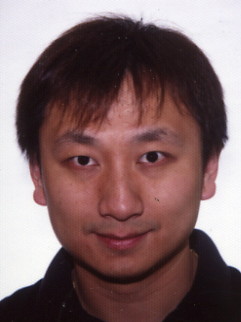
Prof. Patrick C. K. Hung
University of Ontario Institute of Technology (UOIT), Canada
Title: Children's Privacy Protection Engine for Smart Anthropomorphic Toys
Abstract: A toy is an item or product intended for learning or play, which can have various benefits to childhood development. Children's toys have become increasingly sophisticated over the years, with a growing shift from simple physical products to toys that engage the digital world. Toy makers are seizing this opportunity to develop products that combine the characteristics of traditional toys such as dolls and stuffed toys with computing software and hardware. A smart anthropomorphism toy is defined as a device consisting of a physical toy component in the humanoid form that connects to a computing system through networking and sensory technologies to enhance the functionality of a traditional toy. Many studies found out that anthropomorphic designs resulted in greater user engagement. Children trusted such designs serve a good purpose and felt less anxious about privacy. While there have been many efforts by governments and international organizations such as UNICEF to encourage the protection of children's data online, there is currently no standard privacy-preserving framework for mobile toy computing applications. Children's privacy is becoming a major concern for parents who wish to protect their children from potential harms related to the collection or misuse of their private data, particularly their location. This talk presents the related research issues with a video demo.
Bio: Patrick C. K. Hung is an Associate Professor at the Faculty of Business and Information Technology in University of Ontario Institute of Technology, Canada. Patrick has been worked with Boeing Research and Technology on aviation services-related research with two patents on mobile network dynamic workflow system. Patrick is an adjunct faculty member at School of Computer and Software, Nanjing University of Information Science and Technology in China. He is also an Honorary International Chair Professor at National Taipei University of Technology in Taiwan and a Visiting Professor at University of Sao Paulo in Brazil. Before that, he was a Research Scientist with Commonwealth Scientific and Industrial Research Organization in Australia as well as he worked as a software engineer in industry in North America. He is a Coordinating Editor of the Information Systems Frontiers.
University of Ontario Institute of Technology (UOIT), Canada
Title: Children's Privacy Protection Engine for Smart Anthropomorphic Toys
Abstract: A toy is an item or product intended for learning or play, which can have various benefits to childhood development. Children's toys have become increasingly sophisticated over the years, with a growing shift from simple physical products to toys that engage the digital world. Toy makers are seizing this opportunity to develop products that combine the characteristics of traditional toys such as dolls and stuffed toys with computing software and hardware. A smart anthropomorphism toy is defined as a device consisting of a physical toy component in the humanoid form that connects to a computing system through networking and sensory technologies to enhance the functionality of a traditional toy. Many studies found out that anthropomorphic designs resulted in greater user engagement. Children trusted such designs serve a good purpose and felt less anxious about privacy. While there have been many efforts by governments and international organizations such as UNICEF to encourage the protection of children's data online, there is currently no standard privacy-preserving framework for mobile toy computing applications. Children's privacy is becoming a major concern for parents who wish to protect their children from potential harms related to the collection or misuse of their private data, particularly their location. This talk presents the related research issues with a video demo.
Bio: Patrick C. K. Hung is an Associate Professor at the Faculty of Business and Information Technology in University of Ontario Institute of Technology, Canada. Patrick has been worked with Boeing Research and Technology on aviation services-related research with two patents on mobile network dynamic workflow system. Patrick is an adjunct faculty member at School of Computer and Software, Nanjing University of Information Science and Technology in China. He is also an Honorary International Chair Professor at National Taipei University of Technology in Taiwan and a Visiting Professor at University of Sao Paulo in Brazil. Before that, he was a Research Scientist with Commonwealth Scientific and Industrial Research Organization in Australia as well as he worked as a software engineer in industry in North America. He is a Coordinating Editor of the Information Systems Frontiers.
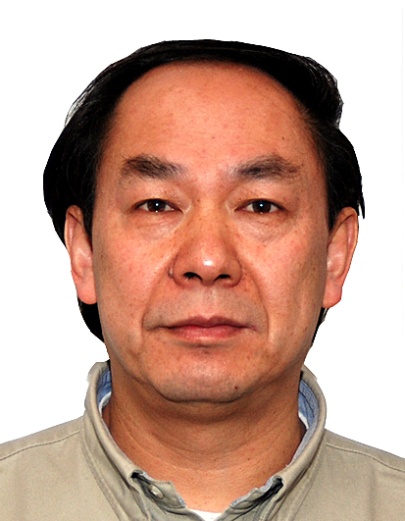
Dr. Zemin Ning
Wellcome Trust Sanger Institute, UK
Title: Bioinformatics and Cloud Computing
Abstract: Genomics is a Big Data science and also is growing faster than ever before. Cloud computing is challenged with many aspects from bioinformatics, where a great amount of genomics data need to be processed in time and effective data storage is sought after data analysis. My talk will be divided into two parts. I will first introduce a new sequencing method Oxford Nanopore Technologies (ONT), which uses a cloud based platform, Metrichor for data processing. With the smallest size of sequencing device and real-time feature of data production, nanopore sequencing could be an ideal platform to be developed as a rapid diagnostic tool for management of outbreaks of various diseases. The second part in my talk will cover currently available bioinformatics cloud resources, including cloud platforms, software packages, applications, analysis environments and datasets.
Bio: Dr. Zemin Ning is a Senior Scientific Manager and heads the group of "High Performance Assembly" at the Wellcome Trust Sanger Institute, UK. Trained in Engineering/Physics, he has been active in genome informatics, specializing in sequence alignment and genome assembly. After completing a PhD degree at Aston University and postdoc training at the Cavendish Laboratory, Cambridge University, he joined in the Sanger Institute in 1999 to pursue bioinformatics research. Over the past years, he and his colleagues in the group have developed a number of bioinformatics tools, which are widely appreciated by the genomics community. The group has also produced over 30 de novo assemblies from large animal and plant genomes, including Gorilla, Zebrafish, Tasmanian Devil, Bamboo and Miscanthus.
Wellcome Trust Sanger Institute, UK
Title: Bioinformatics and Cloud Computing
Abstract: Genomics is a Big Data science and also is growing faster than ever before. Cloud computing is challenged with many aspects from bioinformatics, where a great amount of genomics data need to be processed in time and effective data storage is sought after data analysis. My talk will be divided into two parts. I will first introduce a new sequencing method Oxford Nanopore Technologies (ONT), which uses a cloud based platform, Metrichor for data processing. With the smallest size of sequencing device and real-time feature of data production, nanopore sequencing could be an ideal platform to be developed as a rapid diagnostic tool for management of outbreaks of various diseases. The second part in my talk will cover currently available bioinformatics cloud resources, including cloud platforms, software packages, applications, analysis environments and datasets.
Bio: Dr. Zemin Ning is a Senior Scientific Manager and heads the group of "High Performance Assembly" at the Wellcome Trust Sanger Institute, UK. Trained in Engineering/Physics, he has been active in genome informatics, specializing in sequence alignment and genome assembly. After completing a PhD degree at Aston University and postdoc training at the Cavendish Laboratory, Cambridge University, he joined in the Sanger Institute in 1999 to pursue bioinformatics research. Over the past years, he and his colleagues in the group have developed a number of bioinformatics tools, which are widely appreciated by the genomics community. The group has also produced over 30 de novo assemblies from large animal and plant genomes, including Gorilla, Zebrafish, Tasmanian Devil, Bamboo and Miscanthus.
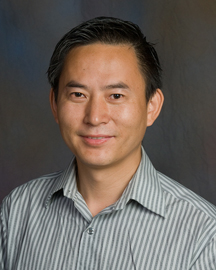
Dr. Honggang Wang
University of Massachusetts Dartmouth , USA
Title: Towards Smart and Secure Connected Health
Abstract: Connected health uses Internet, sensing, communications and intelligent techniques in support of healthcare applications. Wireless body area networks (WBANs) with various types of biomedical sensors serve as one major infrastructure for connected health and provide an opportunity to address issues in rapidly increasing connected health applications. However, there are significant challenges in the area, such as improving the performance of WBANs, analyzing large physiological data collected from biomedical sensors, securing data transmission and protecting data privacy especially in mobile and wireless environments. I will introduce two case studies in this area: (1) developing a wearable biosensor system for the remote detection of life threatening events in infants; (2) designing a security system to support reliable and secured data transmissions over WBANs.
Bio: Dr. Honggang Wang received his Ph.D. in Computer Engineering at University of Nebraska-Lincoln in 2009. He is an associate professor at University of Massachusetts (UMass) Dartmouth. He is also the faculty member of Biomedical Engineering and Biotechnology Ph.D. program (BMEBT) at UMass Dartmouth. He has been a faculty member of Data Science master program of UMass Dartmouth since 2015. His research interests include Wireless Health, Body Area Networks (BAN) and biomedical sensor design, BIG DATA in mHealth, Cyber and Multimedia Security, Mobile Multimedia and Cloud, Wireless Networks and Cyber-physical System. He has published more than 130 papers in his research areas, including numerous publications in prestigious IEEE journals and conferences. He served as the lead Guest Editor of IEEE Journal of Biomedical and Health Informatics (J-BHI) special issue on "Emerging Wireless Body Area Networks (WBANs) for Ubiquitous Healthcare" in 2013. He serves as an Associate Editor/Editor/Area Editor for several IEEE journals such as IEEE Transaction on Multimedia, IEEE transactions on Big Data, IEEE transactions on Vehicular Technologies, IEEE IoT (Internet of Things) Journal (area editor), and IEEE Communication Magazine (2014-2015). He also served as TPC Chair or Co-Chair for several international conferences such as ICST/ACM BODYNETS 2013, IEEE HEALTHCOM 2015, IEEE ISCC 2015, ACM/EAI Mobimedia 2015 and IEEE ICC 2015 (symposium Co-chair). He serves as the steering committee Co-chair of IEEE CHASE (IEEE Conference on Connected Health: Applications, Systems and Engineering Technologies) and TPC Co-chair of IEEE CHASE 2016, which is a leading international conference in the field of connected health. He is the secretary of IEEE COMSOC e-Health Committee and Vice Chair of IEEE COMSOC Multimedia Communications Technical Committee (MMTC) Letters&Member Communications. He served on NSF panel 2012-2016. He received IEEE Multimedia Communications Technical Committee (MMTC) Outstanding Leadership Award (2015). His research has been reported by media such as ABC 6 TV and Standard Times Newspaper. He received UMass Dartmouth Sponsored Research Recognition Award in 2015.
University of Massachusetts Dartmouth , USA
Title: Towards Smart and Secure Connected Health
Abstract: Connected health uses Internet, sensing, communications and intelligent techniques in support of healthcare applications. Wireless body area networks (WBANs) with various types of biomedical sensors serve as one major infrastructure for connected health and provide an opportunity to address issues in rapidly increasing connected health applications. However, there are significant challenges in the area, such as improving the performance of WBANs, analyzing large physiological data collected from biomedical sensors, securing data transmission and protecting data privacy especially in mobile and wireless environments. I will introduce two case studies in this area: (1) developing a wearable biosensor system for the remote detection of life threatening events in infants; (2) designing a security system to support reliable and secured data transmissions over WBANs.
Bio: Dr. Honggang Wang received his Ph.D. in Computer Engineering at University of Nebraska-Lincoln in 2009. He is an associate professor at University of Massachusetts (UMass) Dartmouth. He is also the faculty member of Biomedical Engineering and Biotechnology Ph.D. program (BMEBT) at UMass Dartmouth. He has been a faculty member of Data Science master program of UMass Dartmouth since 2015. His research interests include Wireless Health, Body Area Networks (BAN) and biomedical sensor design, BIG DATA in mHealth, Cyber and Multimedia Security, Mobile Multimedia and Cloud, Wireless Networks and Cyber-physical System. He has published more than 130 papers in his research areas, including numerous publications in prestigious IEEE journals and conferences. He served as the lead Guest Editor of IEEE Journal of Biomedical and Health Informatics (J-BHI) special issue on "Emerging Wireless Body Area Networks (WBANs) for Ubiquitous Healthcare" in 2013. He serves as an Associate Editor/Editor/Area Editor for several IEEE journals such as IEEE Transaction on Multimedia, IEEE transactions on Big Data, IEEE transactions on Vehicular Technologies, IEEE IoT (Internet of Things) Journal (area editor), and IEEE Communication Magazine (2014-2015). He also served as TPC Chair or Co-Chair for several international conferences such as ICST/ACM BODYNETS 2013, IEEE HEALTHCOM 2015, IEEE ISCC 2015, ACM/EAI Mobimedia 2015 and IEEE ICC 2015 (symposium Co-chair). He serves as the steering committee Co-chair of IEEE CHASE (IEEE Conference on Connected Health: Applications, Systems and Engineering Technologies) and TPC Co-chair of IEEE CHASE 2016, which is a leading international conference in the field of connected health. He is the secretary of IEEE COMSOC e-Health Committee and Vice Chair of IEEE COMSOC Multimedia Communications Technical Committee (MMTC) Letters&Member Communications. He served on NSF panel 2012-2016. He received IEEE Multimedia Communications Technical Committee (MMTC) Outstanding Leadership Award (2015). His research has been reported by media such as ABC 6 TV and Standard Times Newspaper. He received UMass Dartmouth Sponsored Research Recognition Award in 2015.
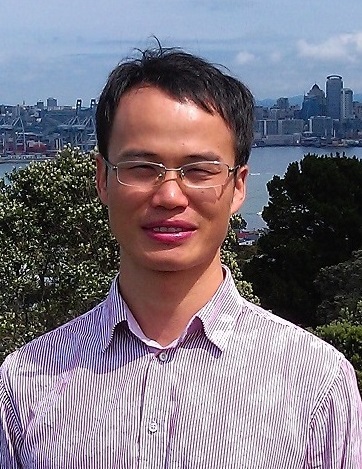
Dr. Zhangjie Fu
Nanjing University of Information Science and Technology, China
Title: Semantic Searchover Encrypted Cloud Data
Abstract: With the increasing adoption of cloud computing,a growing number of users outsource their datasets into cloud.The datasets usually are encrypted before outsourcing to preservethe privacy. However, the common practice of encryption makesthe effective utilization difficult. Many schemes are proposedto make encrypted data searchable based on keywords. However,keyword-based search schemes ignore the semantic representationinformation of user’s retrieval, and cannot completelymeet with users search intention. Therefore, how to design acontent-based search scheme and make semantic search moreeffective and context-aware is a difficult challenge. In this talk, I will present an innovative semantic search scheme based onthe concept hierarchy and the semantic relationship betweenconcepts in the encrypted datasets. More specifically, our schemefirst indexes the documents and builds trapdoor based on theconcept hierarchy. To further improve the search efficiency, weutilize a tree-based index structure to organize all the documentindex vectors. Our experiment results based on the real worlddatasets show the scheme is more efficient than previous scheme.
Bio: Prof. Jiefu Zhang received his PhD in computer science from the College of Computer and Communications, Hunan University, China, in 2012. He is currently an associate professor at the College of Computer and Software, Nanjing University of Information Science and Technology, China. He was a visiting scholar of Computer Science and Engineering at State University of New York at Buffalo from Mar. 2015 to Mar. 2016. His research interests include Cloud & Outsourcing Security, Digital Forensics, and Information Hiding. His research has been supported by NSFC, PAPD, and Qinglan Project.
Nanjing University of Information Science and Technology, China
Title: Semantic Searchover Encrypted Cloud Data
Abstract: With the increasing adoption of cloud computing,a growing number of users outsource their datasets into cloud.The datasets usually are encrypted before outsourcing to preservethe privacy. However, the common practice of encryption makesthe effective utilization difficult. Many schemes are proposedto make encrypted data searchable based on keywords. However,keyword-based search schemes ignore the semantic representationinformation of user’s retrieval, and cannot completelymeet with users search intention. Therefore, how to design acontent-based search scheme and make semantic search moreeffective and context-aware is a difficult challenge. In this talk, I will present an innovative semantic search scheme based onthe concept hierarchy and the semantic relationship betweenconcepts in the encrypted datasets. More specifically, our schemefirst indexes the documents and builds trapdoor based on theconcept hierarchy. To further improve the search efficiency, weutilize a tree-based index structure to organize all the documentindex vectors. Our experiment results based on the real worlddatasets show the scheme is more efficient than previous scheme.
Bio: Prof. Jiefu Zhang received his PhD in computer science from the College of Computer and Communications, Hunan University, China, in 2012. He is currently an associate professor at the College of Computer and Software, Nanjing University of Information Science and Technology, China. He was a visiting scholar of Computer Science and Engineering at State University of New York at Buffalo from Mar. 2015 to Mar. 2016. His research interests include Cloud & Outsourcing Security, Digital Forensics, and Information Hiding. His research has been supported by NSFC, PAPD, and Qinglan Project.
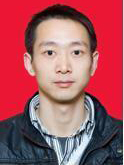
Dr. Xianyi Chen
Nanjing University of Information Science and Technology, China
Title: Coverless information hiding method based on the text big data
Abstract: Recently, many fruitful results have been presented in text information hiding such as text format-based, text image-based method and so on. However, existing information hiding approaches so far have been very difficult to resist the detecting techniques in steganalysis based on statistical analysis. Based on the text big data, an efficient method, named coverless text information hiding, is presented, which is a brand-new method for information hiding. The proposed algorithm directly generates a stego-vector from the hidden information at first. Then a normal text that includes the stego-vector will be retrieved, which means that the secret messages can be send to the receiver without any modification for the stego-text. Therefore, this method is robust for any current steganalysis algorithm, and it has a great value in theory and practical significance.
Bio: Xianyi Chen received his PhD in Computer Science and Technology from Hunan University, China, in 2014. He is a lecturer in the School of Computer and Software, Nanjing University of Information Science and Technology, China. His research interests include information hiding, digital watermarking, image processing. E-mail: 0204622@163.com.
Nanjing University of Information Science and Technology, China
Title: Coverless information hiding method based on the text big data
Abstract: Recently, many fruitful results have been presented in text information hiding such as text format-based, text image-based method and so on. However, existing information hiding approaches so far have been very difficult to resist the detecting techniques in steganalysis based on statistical analysis. Based on the text big data, an efficient method, named coverless text information hiding, is presented, which is a brand-new method for information hiding. The proposed algorithm directly generates a stego-vector from the hidden information at first. Then a normal text that includes the stego-vector will be retrieved, which means that the secret messages can be send to the receiver without any modification for the stego-text. Therefore, this method is robust for any current steganalysis algorithm, and it has a great value in theory and practical significance.
Bio: Xianyi Chen received his PhD in Computer Science and Technology from Hunan University, China, in 2014. He is a lecturer in the School of Computer and Software, Nanjing University of Information Science and Technology, China. His research interests include information hiding, digital watermarking, image processing. E-mail: 0204622@163.com.
Sidebar Menu
Sponsors
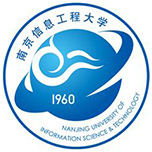




Co-sponsors



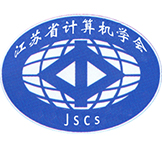
Supporters



